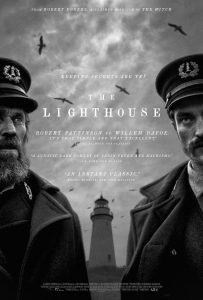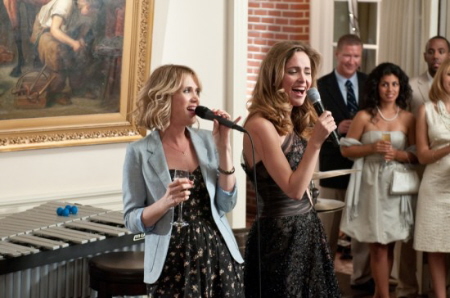Director Robert Eggers’ second film is a dreary, deranged dream – strange and surreal and inscrutable. In The Lighthouse, Eggers, with a screenplay he co-wrote with his brother Max Eggers, builds on the foreboding restraint on display in The Witch, but this time exploring the tense, ambivalent relationship between two lighthouse keepers in the late nineteenth-century. It features absorbing performances and striking cinematography. But the film is first and foremost an opportunity for Eggers to continue honing his distinctive brand of historically based, folklore-inflected, psychological horror. His directorial voice is a welcome addition to contemporary horror – one that may confuse and alienate, but one that seems critical and necessary, if only to challenge us to confront discomfort when there are no easy answers.
Ephraim Winslow (Robert Pattinson) has just arrived at an isolated island off the coast of New England. Contracted to work there for a short time, he is overseen by the temperamental, irascible Thomas Wake (Willem Dafoe). The elder lighthouse keeper immediately imposes his authority, forcing the newcomer to do many of the more strenuous activities. Thomas also keeps the room at the top of the lighthouse under lock and key, for mysterious reasons. At the same time, Ephraim is beset by bizarre visions and hallucinations, which only make his stay on the island even more disorienting. Over time, their relationship becomes increasingly strained and violent. Everything comes to a head when a storm prevents Ephraim from leaving the island, and the mood between the two men, and the weather around them, becomes tempestuous.
 Perhaps what is most immediately distinctive is the look of the film. Jarin Blaschke‘s black-and-white cinematography is filmed in a 1.19:1 (19:16) ratio. The sombre, monochromatic colour scheme and the unconventional ratio, which makes the screen look more square-ish than elongated, creates a claustrophobic tone to the whole film. Additionally, the shadowy imagery is nightmarish, and yet remarkable in feeling both immersive and distant. Combined with crisp sound mixing and a screenplay that becomes progressively more outlandish and twisted, the unfolding narrative is almost impossible to predict. The only thing that seems certain is the persistent sense of foreboding that lingers throughout.
Perhaps what is most immediately distinctive is the look of the film. Jarin Blaschke‘s black-and-white cinematography is filmed in a 1.19:1 (19:16) ratio. The sombre, monochromatic colour scheme and the unconventional ratio, which makes the screen look more square-ish than elongated, creates a claustrophobic tone to the whole film. Additionally, the shadowy imagery is nightmarish, and yet remarkable in feeling both immersive and distant. Combined with crisp sound mixing and a screenplay that becomes progressively more outlandish and twisted, the unfolding narrative is almost impossible to predict. The only thing that seems certain is the persistent sense of foreboding that lingers throughout.
This foreboding is also embodied in the dynamic, feverish performances of Pattinson and Dafoe. They are bold and committed, allowing themselves to be consumed by their characters and their environments. Pattinson is developing quite a reputation for playing challenging roles, and Dafoe, yet again, demonstrates his impressive range. Together, they deftly generate the tension required to propel the narrative, uneasily, forward.
The film is not necessarily easy viewing. To some, Eggers’ brand of psychological alienation may be bewildering, or worse, exasperating. It privileges mood over meaning, atmosphere over answers. But, for those willing to eschew conventional narratives or neat endings, his visions so far are both provocative and thought-provoking – and bode well for his next project.
The Lighthouse is in cinemas from 6th February through Universal Pictures.





